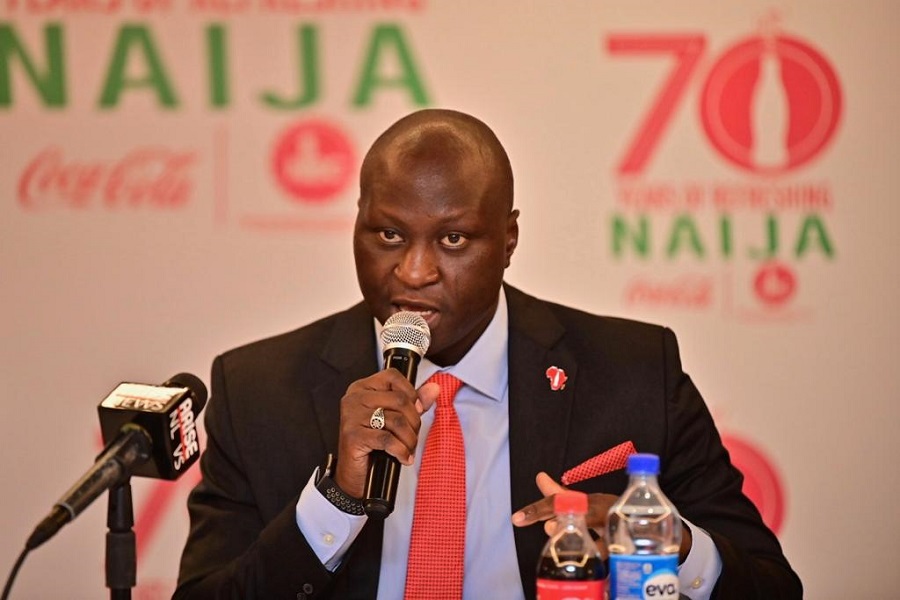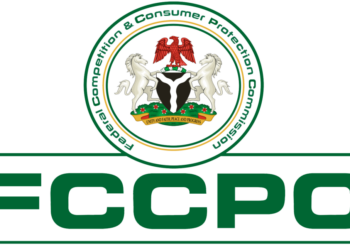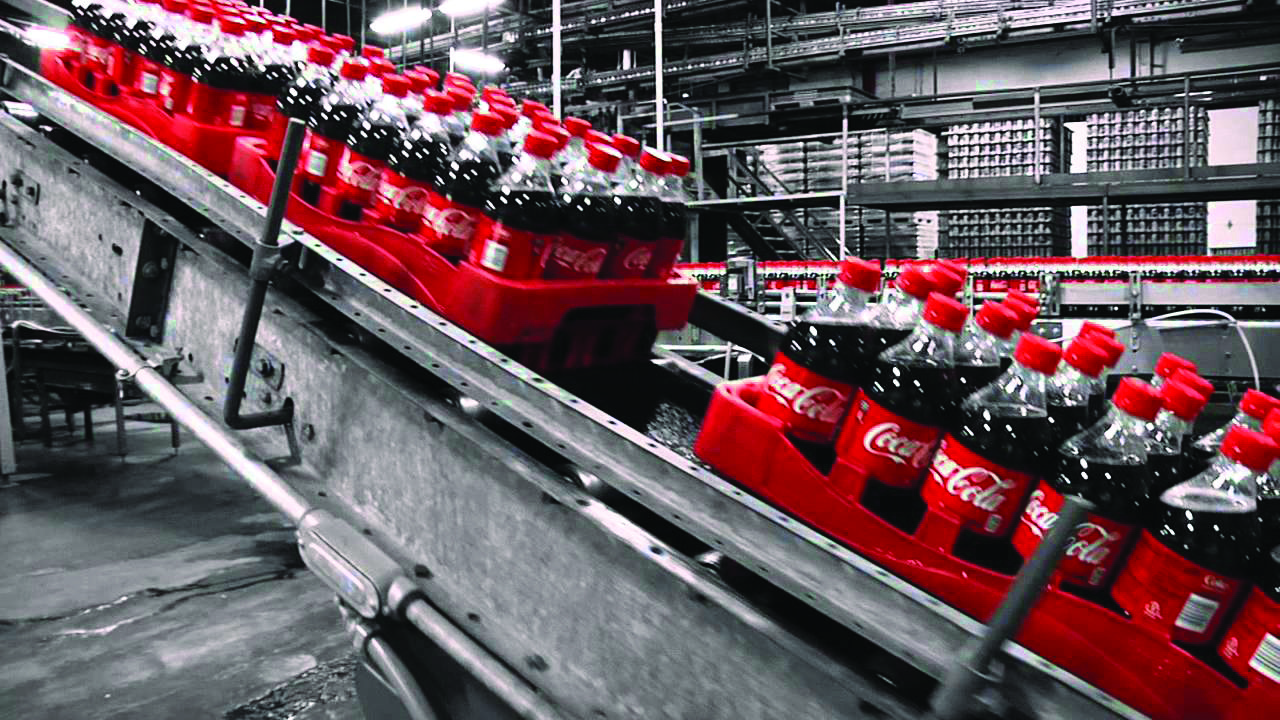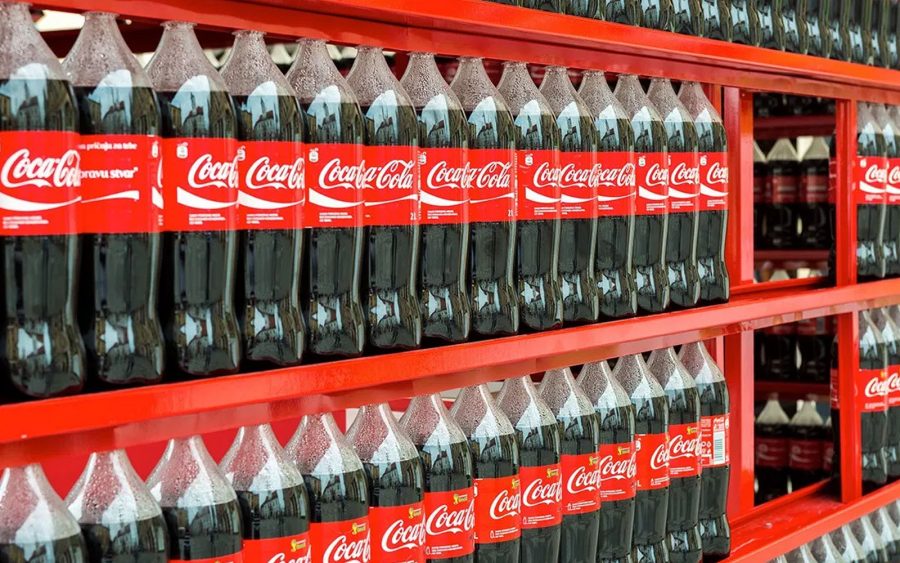With 70 years of dominance in the Nigerian market, one cannot help but be curious about Coca-Cola Nigeria’s winning formula. In this piece, we explore the company’s core philosophies and its well-thought-out business and sustainability strategies to refresh the world, make a difference, and ensure a better-shared future.
There is a popular, if not cliché saying that the customer is always right. It has always been a subject of contention to decide whether the consumer is truly satisfied with the product and service. Consumer satisfaction has always been hinged on the measure of how happy consumers are with a company’s products, services and capabilities. Experts in marketing have linked the lack of consumer satisfaction to a dwindling customer base while consumer satisfaction is considered as a major reason for the retention of consumers.
According to the Genesys Global Survey, bad customer service costs organisations $338.5 billion globally per year in lost business. It is against this backdrop that the Coca-Cola brand has consistently exceeded consumer expectations. To be sure, Coca-Cola has continuously tracked customers to determine the level of consumer satisfaction, not only through its products but also with the experiences its consumers have with the brand.
In a consumer satisfaction survey published by Forbes, 96.5% of deliveries are in full, on time and accurately invoiced. 94.9% of customers think that Coca-Cola has exceeded their expectations. 2021 saw the company continue its hot streak, as Brand Finance, a London-based brand evaluation company, ranked Coca-Cola as the strongest brand in the US, even though its brand value decreased 13% to $33.2 billion. The company was evaluated based on factors such as marketing investment, customer familiarity, staff satisfaction and corporate reputation, and scored 91.7 out of 100 on a brand strength index score.
This harmonised equity across the world has translated to Coca-Cola leading the market within every country or region. The company’s heritage in Nigeria, coupled with its meticulously planned business and sustainability strategy has ensured its seat at the top of the pile, not only in Nigeria but across the globe. And if the company’s ever-growing ambitions and history of innovative projects are anything to go by, one can only expect more, more and more. With the company reaching 70 years in Nigeria, the need to do more, even in the micro-moments of its consumers, is greater than ever.
Over the years, Coca-Cola has remained committed to ensuring consumer satisfaction and relevance based on five core principles, namely availability, affordability, acceptability, activation and attitude. Despite the healthy competition in the drinks and beverage market, Coca-Cola has been a market leader for its ubiquitous nature, a variety of premium quality products including zero-sugar options, a strong distribution network, people-centred campaigns, and the impact of sales on women-empowerment.
Coca-Cola has a long history of putting its consumers first in many of its popular campaigns. A flashback to the 2010 World Cup track ‘Wavin Flag’ brings the memory of ecstatic football fans and loyalists worldwide after a goal was scored for their respective national teams. That moment conveyed the brand’s message of unity and friendship as reflected in the ‘Coca-Cola: Open Happiness.’
The “Share A Coke” campaign was particularly interesting as it created a sense of personal relationship with consumers through the use of customised bottles. Add to this, the Coca-Cola Premier League Campaign with the slogan “Banter Better with Coca-Cola” in 2019 which leveraged the cult-like following and immense passion Nigerians have for football to reach them. The idea of good-humoured banter exchanges at viewing centres, newspaper stands, and other places where football fans are likely to congregate, formed the centrifuge of this Coca-Cola campaign.
In 2020, the brand won over the hearts of millions with well-meaning sentimentality, reminding us that after a troubling year, making time for the ones we love is what makes Christmas truly the most special time of year, no matter how we celebrate it. In addition to this, the company left Nigerians with another positively profound message by commissioning the painting of murals depicting and encouraging Nigerians to embrace harmony, unity in diversity, and hope following a difficult and divisive year.
It would be recalled too that Coca-Cola’s ‘Taste The Feeling’ campaign, a marked shift from the brand’s hugely successful theme “Open Happiness” also underscored the company’s commitment to choice, offering consumers whichever Coca-Cola product suits their taste, lifestyle and diet – with or without calories, with or without caffeine. “Taste the Feeling” campaign brought to life the idea that drinking a Coca-Cola product is simply pleasurable, making everyday moments indeed special. The company followed this up with a more resonant global philosophy in 2021 titled Real Magic, which features messaging encouraging people to indulge in a sense of community, and to view life with a renewed sense of purpose as we return to normalcy following a difficult 18 months.
Many companies see a favourable corporate image as the holy grail. Meanwhile, only a few believe it is the cherry on top of an effective sustainability strategy. The most prominent of companies under this school of thought is Coca-Cola, a company that has not only exceeded consumer/public expectations but has also embodied a commitment to ensuring a better-shared future.
Over the years, Coca-Cola has remained committed to serving the general public in the full spectrum of its capabilities, as distilled in its key programme areas which include women, water, waste, and wellbeing.
Women are the key drivers of Coca-Cola retail sales. They are mothers, wives, single mothers all connected by the same need to have children. In the process of childbirth, many of them had encountered near-death experiences, stillbirths, poor infrastructure and limited funding for emergencies. To demonstrate the brand’s interest in the welfare of women, the Coca-Cola Safe Birth Initiative, which seeks to support the attainment of the Sustainable Development Goal (SDG) 3, was created. It targets the reduction of maternal and new-born mortality rate while focusing on strengthening the capacity of selected public hospitals. Coca-Cola procured vital maternal and neonatal medical equipment and supplies; trained biomedical engineering technicians across these facilities to improve equipment maintenance and uptime; and reactivated a large stock of abandoned medical equipment wasting away in public hospitals. So far, Coca-Cola has donated ten 40-feet containers of medical equipment, kits and supplies worth over 3.8 billion Naira to leading referral hospitals comprising teaching hospitals, federal medical centres and general hospitals like Federal Medical Centre Ebute-Metta Lagos, Abuja National Hospital, Alimosho General Hospital and Federal Medical Centre, Owerri, with a total of fifteen (15) hospitals set to benefit from this initiative. The initiative, through its partners, Medshare International, has also trained over 120 technical staff in these health centres.
Furthermore, the company reiterated its commitment to women empowerment by impacting over 450,000 Nigerian women through initiatives implemented by partnered NGOs and public bodies. These programmes not only lifted various women out of financially precarious situations but also made them crucial contributing members of society.
In many parts of the world, plastic waste has been a major source of concern for environmentalists. In Nigeria, our waterways are polluted with the indiscriminate dumping of plastic waste leading to flooding and threat to aquatic life. Needless to say, plastics often contain additives making them stronger, more flexible, and durable. But many of these additives can extend the life of products if they become litter, with some estimates ranging to at least 400 years to degrade. It is against this backdrop that Coca-Cola launched its World Without Waste vision in 2018 with a simple focused purpose to make the world’s packaging waste problem a thing of the past.
The World Without Waste drive was built on three fundamental goals: to make all consumer packaging 100% recyclable by 2025 and aspire to create packaging that is at least 50% recycled material by 2030; collect and recycle a bottle or can for each one the company sells by 2030; work together with various partners to support a healthy, debris-free environment. In realising this vision, the company has implemented tens of initiatives, investing over $2m and ensuring the recovery of a total of over 1.5 billion plastic bottles in Nigeria.
The initiatives include the Recycling Scheme for Women and Youth Empowerment (RESWAYE), implemented by the Mental and Environmental Development Initiative for Children (MEDIC). This year, the programme came to an end and recorded impressive feats with over 159,000kg of plastic waste retrieved; over 2500 women and youth impacted, and over 11,000 indirect beneficiaries. Other impactful initiatives funded by Coca-Cola include the Mission Zero Plastic Initiative, Waste to Wealth, Project Protect 10,000, RecyclesPay, Clean-up Naija, Waste In the City, among others.
It is believed that water security is critical to building resilient communities and economic empowerment across Africa. In March 2021, The Coca-Cola Foundation (TCCF) announced the achievement of the Replenish Africa Initiative’s (RAIN) current goal to improve access to clean water for 6 million people. RAIN, launched in 2009, is the Foundation’s flagship clean water program in Africa contributing to helping countries across the continent achieve the United Nations’ Sustainable Development Goals on clean water and sanitation (SDG 6). The achievement was a result of collective efforts from over 300 international and local public, private and civil society partners. Through RAIN, 4,000 African communities saw the acceleration of integrated water resources management efforts to decrease stress on food production, water supply and sanitation services.
Furthermore, the events of the past 18 months were a real insight into the extensive nature of Coca-Cola’s sustainability strategy with regards to ensuring the wellbeing of its consumers and its immediate environment. With the advent of the COVID-19 pandemic, the company was presented with an opportunity to leverage existing relationships with recognised bodies and NGOs to cater to the diverse needs of Nigerians. In response to the pandemic, the company initially halted marketing activities, utilising its assets to ensure the propagation of stay-safe messaging across multiple channels in the country. Coca-Cola followed this up with a N228 million donation to the International Federation of Red Cross and Red Crescent Societies (IFRC) to support national efforts in the fight against COVID-19 through the provision of essential medical supplies, personal protective equipment (PPE) and risk communications to impacted communities, healthcare personnel on the frontlines and treatment centres across the country.
Coca-Cola’s values, according to the company, are to refresh the world, inspire moments of optimism and happiness, create shared value, and ultimately make a difference. These values are not just mantras being emphasised for the fun of it – there are evident examples and a 70-year footprint to justify this assertion.
Written by Abiola Odutola



















